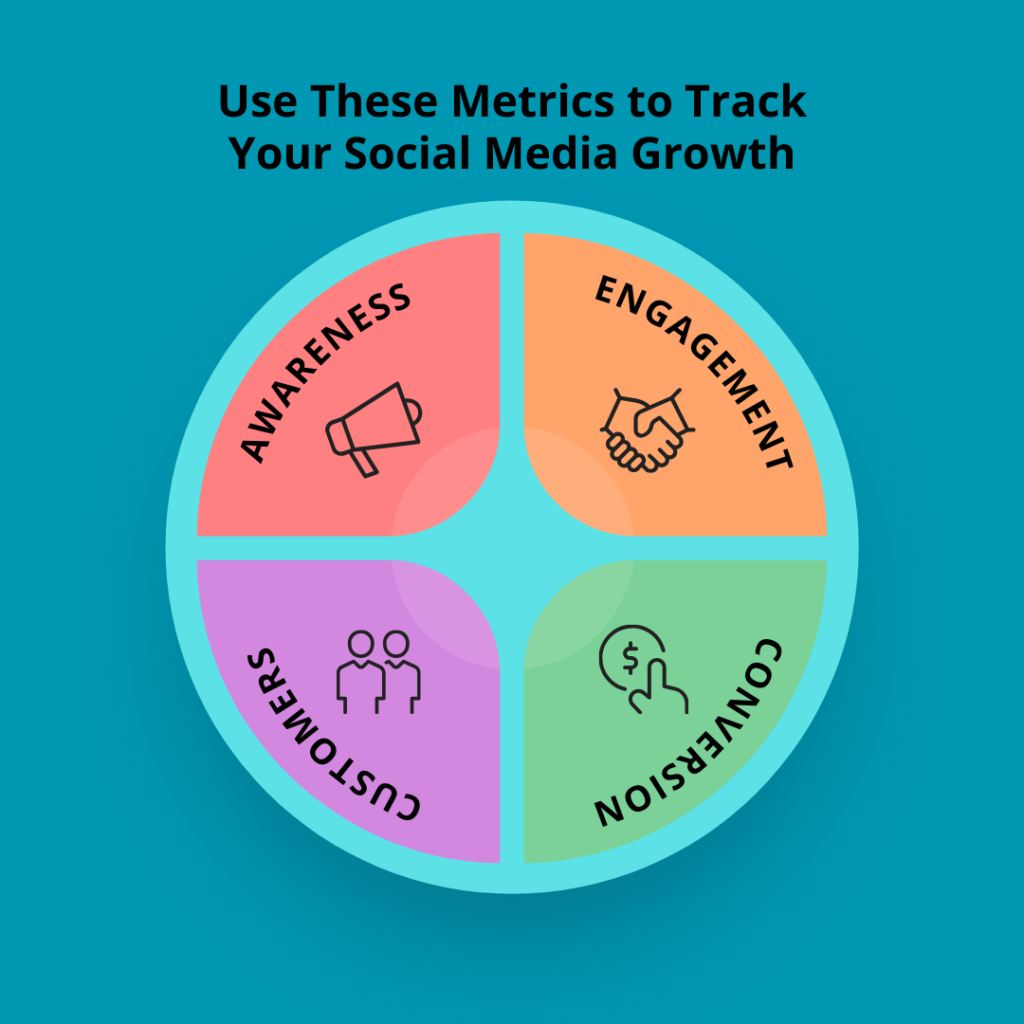Social Media Metrics: The Key to Digital Marketing Success
In the fast-paced world of digital marketing, data-driven decision-making is the cornerstone of success. How do you know if your social media strategy is working? How do you evaluate the impact of your online efforts? The answer to these questions lies in social media metrics. These metrics, which provide valuable insights into online performance, are the compass that guides digital marketing professionals toward success.

What Are Company-Level Social Media Metrics?
Company-level social media metrics are key indicators that assess various aspects of a company’s online presence and social media marketing strategy. These metrics not only tell us how we are performing but also shed light on the effectiveness of our social media activities, helping measure the success and return on investment (ROI) of digital marketing strategies.
Key Company-Level Social Media Metrics:
Reach: Measures the number of unique individuals who have seen the content posted on social media. Reach indicates how many people potentially have been exposed to the brand and its content.
Impressions: Represents the total number of times the content has been displayed on social media, regardless of whether it’s a unique person or the same person viewing it multiple times. Impressions give an idea of how many times the content has been viewed in total.
Engagements: Includes the total number of actions that users have taken on the content, such as likes, comments, shares, clicks on links, etc. Engagements reflect the level of audience participation and engagement with the content.
4. Engagement Rate: Calculates the percentage of engagements in relation to reach or the number of impressions. This metric measures the effectiveness of the content in engaging the audience.
5. Followers and Growth: Shows the number of new followers the company has gained over time. Follower growth is an indicator of the brand’s appeal and its ability to attract new leads.
6. Conversion Rate: Evaluates the percentage of social media visitors who have taken a desired action, such as completing a form, signing up, or making a purchase. This metric is crucial for measuring performance in terms of lead generation or sales.
7. Response Time: Reflects the average time it takes the company to respond to interactions and inquiries from followers on social media. A quick response time is important for maintaining customer satisfaction and the brand’s reputation.
8. Content Analysis: Examines which types of content perform best (e.g., images, videos, infographics) and which times or days are most effective for posting.
9. Audience Analysis: Gains demographic and behavioral insights about the audience to better understand their preferences and needs.
The Importance of Analytics in Social Media Management
Analytics and social media metrics are essential for community managers and digital marketing professionals for several key reasons:
1. Measuring Performance: Analytics allows the evaluation of the performance of social media posts and campaigns. By monitoring metrics such as reach, engagement, clicks, and conversions, the community manager can identify which content and approaches are most effective in achieving the company’s goals.
2. Optimizing Strategy: By understanding what types of posts resonate best with the audience, the community manager can adjust their strategy in real-time. Analytical data reveals patterns and trends that help refine tactics and make informed decisions to improve results.
3. Understanding the Audience: Analytics provides valuable information about the behavior and preferences of the audience on social networks. This data allows the community manager to better understand their community and create more relevant and personalized content that generates a greater connection with followers.

4. Identifying Opportunities and Challenges: By analyzing the performance of the competition and comparing it with their own, the community manager can identify opportunities for growth and areas for improvement. This allows them to stay abreast of market trends and adapt their strategy accordingly.
5. Demonstrating Value: Quantifiable metrics provided by analytics allow the community manager to demonstrate the value of their actions.
In summary, social media metrics are the guiding light for digital marketing professionals. They are the tools that allow them to measure, adjust, and demonstrate the impact of their online efforts. If you want to make the most of your social media strategy, do not underestimate the power of analytics and metrics.
